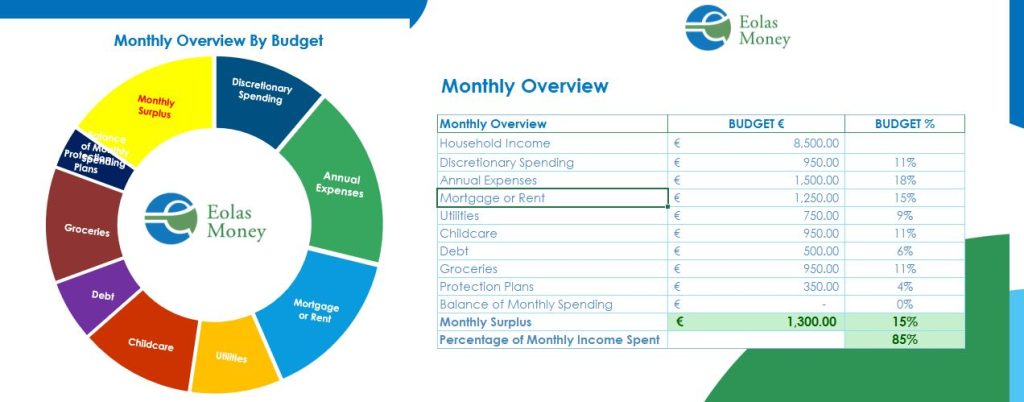How to Prepare a Household Spending Plan?

Preparing a household spending plan is a way to manage your money wisely. For making a household budget, it is crucial to document your current spending and earnings and the financial discipline to adjust your budget so that you will be on a better financial footing.
- Set practical goals for your budget
If you want to build a practical budget, it is important to determine your goals. When there are specific goals, it will help you make the right decisions and stay motivated to stick to your budget. Set a deadline to reach each goal, and if needed, you may provide yourself with an extension later.
- Pay off loans
- Build up enough savings for vacation
- Contribute to an RESP for your children’s education
- Afford your hobbies without getting into debt
- Track your income and spending over a month
Once you have established practical goals, the next step is to figure out how money is flowing into and out of your household. The best way to do it is to know where you are spending your money is to track your spending for a month. Whether you are paying mortgage payments, shopping online, or buying snacks, you should record every cent you spend into a single document. It will give you a good idea of how your habits are affecting your overall monthly expenditure
- Monthly Expense Tracker
You can track your spending using simple tools like an Excel spreadsheet or download our Spending Plan and follow the steps below:
- Fill the Monthly Income tab with your regular monthly income,
- Fill the Monthly Spending tab with your regular monthly expenses. These are expenses that occur regularly every month
- Fill the Annual Spending tab with Annual Expenses. These expenses arise over year, but they are incurred every month
- Click on the Spending Overview It will show you if you have a monthly Surplus or Deficit in your spending!
- The Overview Chart depicts the areas that you spend the most of your monthly income on.
If there is a deficit in the budget, you should work to reduce your spending and increase your income. If there is surplus, you should decide how to use surplus money to save or to best achieve your financial goals.
- Avoid spending more than you make
One of the key reasons for the budget failing is overspending. By using tools like spending plans by Eolas Money, you can set a practical monthly budget. However, your budget must do two things.
- Your budget must help to avoid your fixed expenses from exceeding your income.
- Secondly, it should align with your practical budget goals
Are you spending more than your income? If you are reviewing the monthly expenses, reduce it until total expenses match your total income. It will help you avoid using loans to meet your needs, which can further lead to expensive debt problems.
- Understand the relation between needs and wants
It can be easy to say, but harder to cut down on spending than to balance your budget. You need to understand the relationship between your needs and wants. It depends on your specific situation and budget. Do you eat out three times a week, you don’t need to spend time making home meals, or do you do it just because you like it? Prioritising your needs and delaying or reducing your wants is essential to balancing your budget.
- Make sufficient room for irregular expenses
When you make sufficient room for irregular expenses, it will give you a good idea about your regular spending habits. These expenses may include annual memberships, Christmas shopping, new tires, etc. To avoid such costs from breaking your budget, it is important to take into account a seasonal and unexpected expenses fund.
- Put your home budget plan into action
If you have finished all these previous steps, now it is time to put your budget plan into action. Ask yourself the following questions:
- Does the budget cover all you need in a month (housing, food, utilities, transportation, etc.)?
- Have you considered debt payments and put money aside in a savings account for unexpected expenses, savings, and the fun stuff?
You might find that some part of your budget needs to be adjusted. For this, you may need to revisit your expense tracking, reviewing your bank account statements, rebalancing where your money is going, adjusting your goals, or reflecting on your needs vs. wants. Watch your budget grow with you and enjoy the satisfaction of making real strides toward your financial goals. Looking for budgeting advice? Get expert financial guidance with Eolas Money’s trusted financial advisor in Clonmel — helping you make the right decisions for a stronger financial future. They can also assist you with pension planning, Income protection in Clonmel and other aspects of your financial journey. Book a consultation with a financial planner in Clonmel today.




